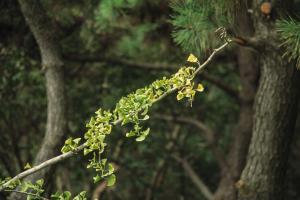Do Mice Eat Tomato Plant Leaves?
Tomato plants are one of the most popular vegetable plants grown in home gardens across the world. They are easy to grow and produce large yields of delicious fruits. However, many gardeners have wondered if mice are a concern when it comes to their tomato plants. In this article, we will explore whether or not mice eat tomato plant leaves and what you can do to prevent damage to your plants.
What are Mice?
Mice are small rodents that belong to the family Muridae. There are many different species of mice, but the most common species in North America is the house mouse. Mice are known for their small size, pointed nose, rounded ears, and long tail. They have a keen sense of smell, excellent hearing, and poor vision which makes them adapt at finding food and navigating their environment. Mice are also known for their rapid reproduction rates and can quickly become a problem if not properly controlled.
Do Mice Eat Tomato Plant Leaves?
The simple answer is yes, mice can eat tomato plant leaves. When mice are hungry and food is scarce, they will eat almost anything, including the leaves of tomato plants. Mice can cause extensive damage to tomato plants by eating the leaves, stems, and fruits. This damage can impact the health of the plant and reduce its overall yield.
How to Prevent Mice from Eating Tomato Plant Leaves
If you are growing tomato plants and are concerned about mice eating the leaves, there are several preventative measures you can take. The first step is to keep your garden area clean and free of debris. This will help to reduce the number of places mice can hide and nest. You should also remove any fallen fruit or vegetables from the garden as mice will eat these as well.
Another measure you can take is to use natural deterrents. Some gardeners recommend using essential oils such as peppermint or eucalyptus around the perimeter of the garden to keep mice away. You can also plant plants such as garlic, onions, or marigolds around your tomato plants as these plants are known to repel rodents.
If you are still concerned about mice eating your tomato plants, you can use physical deterrents such as mouse traps or poison bait stations. However, it is important to use these methods responsibly and ensure that they are placed away from children and pets.
Conclusion
In conclusion, mice can eat tomato plant leaves, and it is important to take preventative measures to protect your plants. By keeping your garden clean and using natural deterrents or physical deterrents, you can reduce the risk of mice damaging your tomato plants. Always remember to use any pest control methods responsibly and follow instructions carefully to ensure the safety of your family, pets, and the environment.

 how many times do yo...
how many times do yo... how many planted tre...
how many planted tre... how many pine trees ...
how many pine trees ... how many pecan trees...
how many pecan trees... how many plants comp...
how many plants comp... how many plants can ...
how many plants can ... how many plants and ...
how many plants and ... how many pepper plan...
how many pepper plan...

































